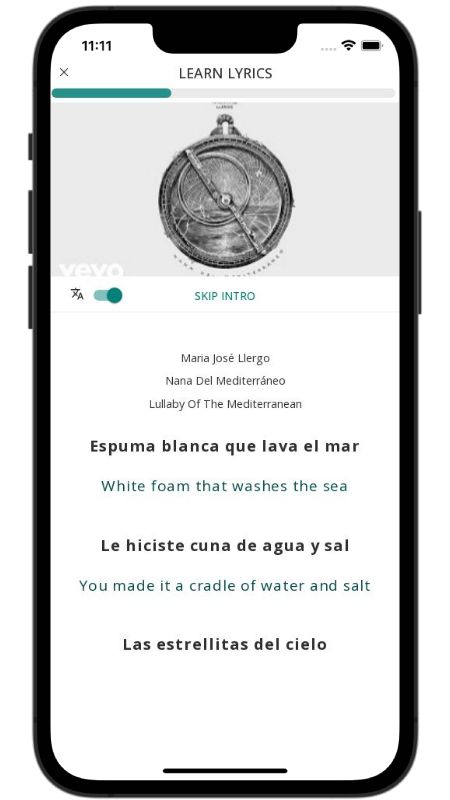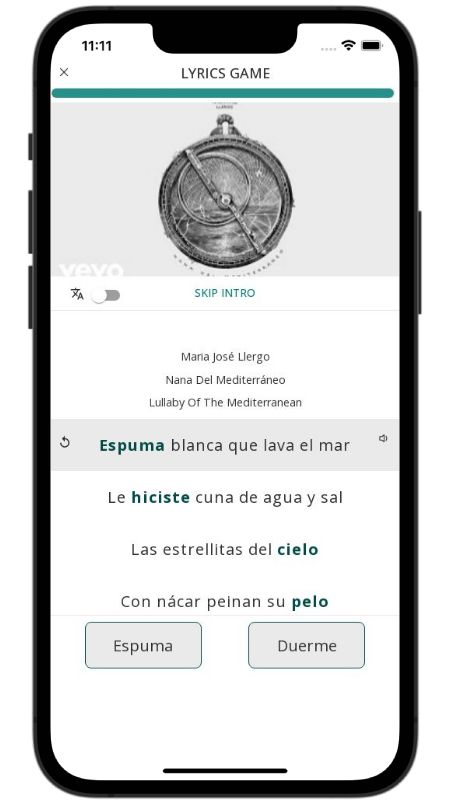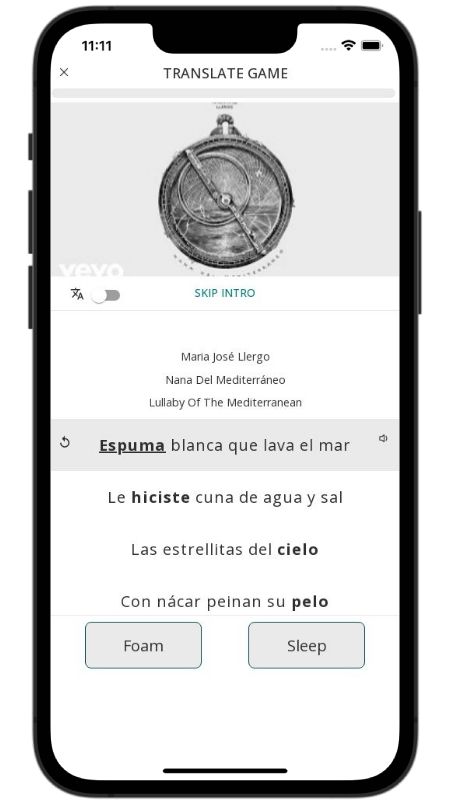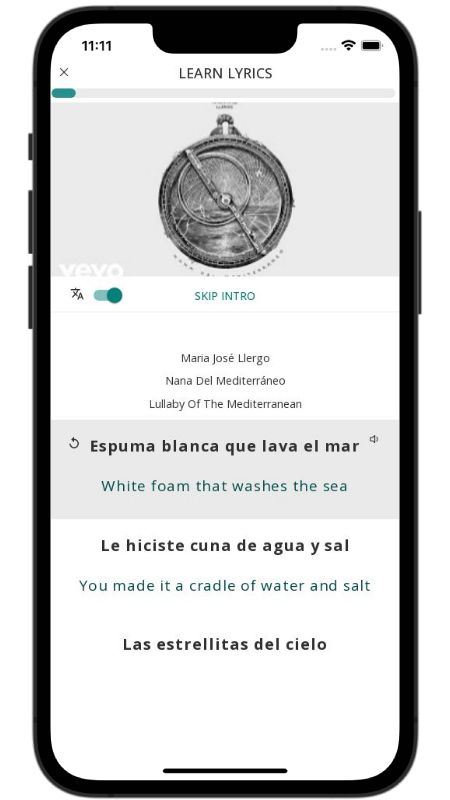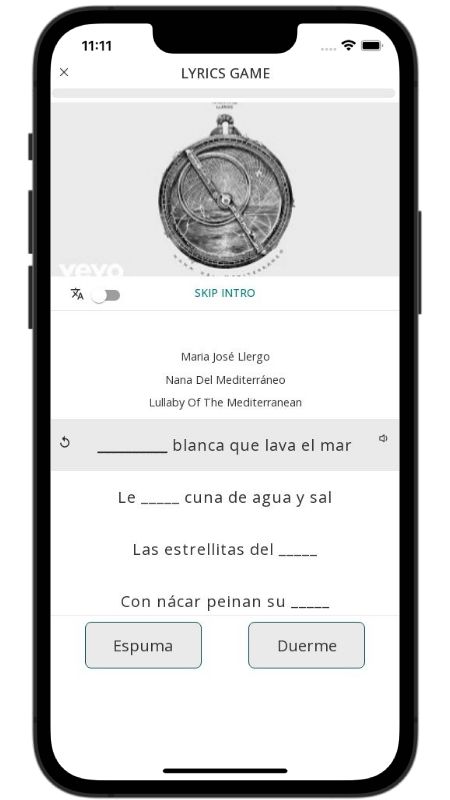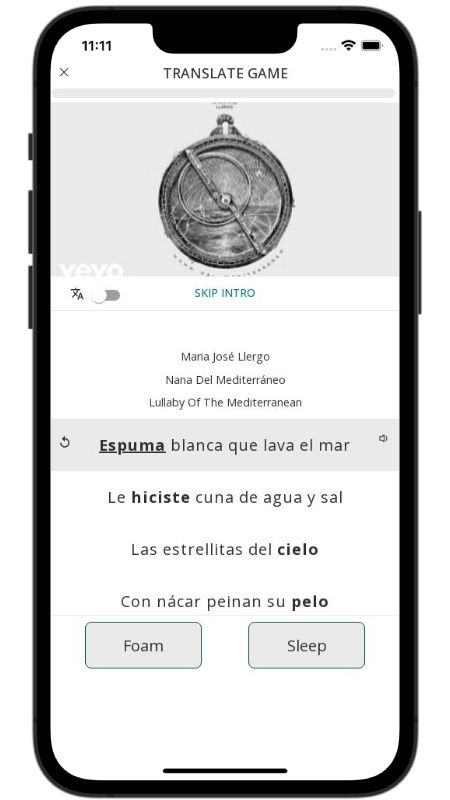Nana Del Mediterráneo Lyrics in English Maria José Llergo
Below, I translated the lyrics of the song Nana Del Mediterráneo by Maria José Llergo from Spanish to English.
These lyrics have verified word for word translations. Click any lyric word to see the translation and hear the pronunciation!
Verse 1
White foam that washes the sea
You made it a cradle of water and salt
The little stars of the sky
With mother-of-pearl they comb their hair
Chorus 1
Sleep, my child, don't cry anymore
Serene waters, serene waters
Chorus 2
They rock you now
Hush
There now
There now
The skies cry, the sea howls
Dreams die overseas
The waves seal its grave
Europe loses its nails
Sleep, my child, don't cry anymore
Serene waters, serene waters
They rock you now
Hush
There now
There now
Lyrics and Translations Licensed & Provided by LyricFind
Lyrics © Warner Chappell Music, Inc.
Did you like this lyrics translation?
Did you know?
In addition to reading lyric translations, you can now learn Spanish with music and lyrics from your favorite artists.
Yes, including Nana Del Mediterráneo by Maria José Llergo!
No more boring lessons. You can now learn with engaging and culturally relevant lyrics from the best artists.
Apple and App Store are trademarks of Apple Inc.
Google Play and the Google Play logo are trademarks of Google LLC.
MORE MARIA JOSÉ LLERGO
iOS AppAndroid AppWeb LessonsFree PDF WorksheetsJoin ClassroomLyrics TranslationBlogAbout UsBuy as GiftLifetime

